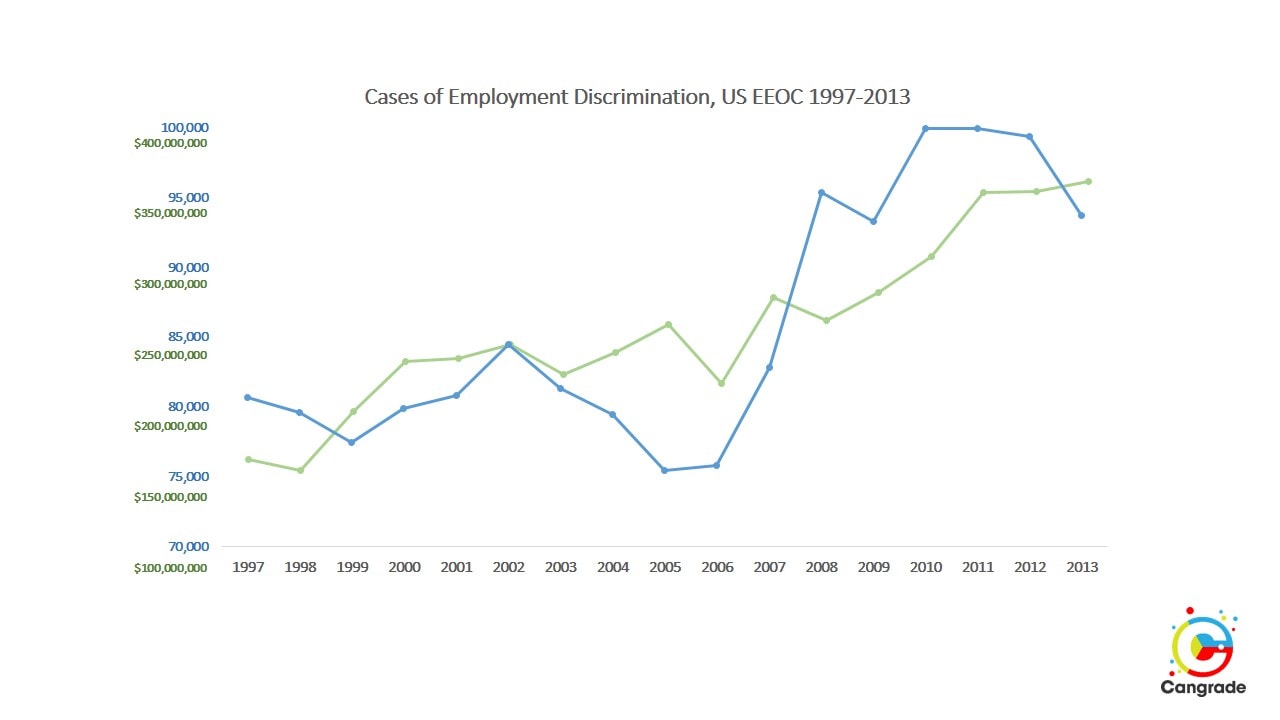Equal Opportunity Hiring is a Valuable Opportunity for Employers
You have probably noticed that some job postings include a statement at the bottom indicating that the organization is an “Equal Opportunity Employer.” What you might not realize is that the organizations that make equal opportunity hiring statements are just as likely to discriminate in the hiring process, sometimes even more so.
While employers increasingly endorse equal opportunity hiring, discrimination remains persistent and may even be increasing. Compared to the previous decade (2000-2009) cases of discrimination in recent years have actually increased by about 12%. During 2013 alone, The US Equal Employment Opportunity Commission (EEOC) obtained over $372 million to compensate over 90,000 victims of employment discrimination, the highest amount in the entire history of the commission. 
What can we do to prevent unconscious bias from undermining equal opportunity hiring?
Graduate Way provides some great advice: “As a general rule, the information obtained and requested through the pre-employment process should be limited to those essential for determining if a person is qualified for the job.” The less irrelevant information collected, the better.
Why is it so important to not even collect irrelevant information in the first place? Consider this study. They found that job applications with white-sounding names receive 50% more callbacks than those with black-sounding names. Even when the qualifications, skills, and experience listed on their resumes were otherwise identical. Simply knowing the applicant’s name can have a dramatic effect on the outcome.
It would be impossible to escape this type of pitfall with a traditional hiring process involving paper resumes (things like race, ethnicity, sex, or religious background can be inferred simply by knowing someone’s name).
However, new hiring technologies (such as Cangrade) have features that allow employers to hide the names and faces of job applicants until after they have been assessed and ranked, based only on the relevant criteria that actually matter.
“Equal opportunity” hiring actually means hiring the best candidates.
It could be the case that employment discrimination simply represents more denied opportunities for certain groups of people. But it is not that simple, the truth is even more disturbing.
The same study mentioned above found that biases also more generally undermine the employer’s ability to accurately evaluate candidates. They found that black job applicants who submit high-quality resumes (listing very desirable qualifications, skills, and experience) are no more likely to receive a callback than applicants with low-quality resumes.
Given this knowledge, it shouldn’t be surprising that the employment assessments with the least bias (such as skills testing, multivariate personality assessments, and validated structured interviews) are also among the best predictors of actual performance on the job.
Think of it this way: Each high-quality job applicant is a valuable opportunity. And each high-quality applicant that is not given proper consideration (for whatever reason) is a valuable opportunity that employers are missing out on.